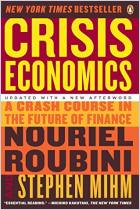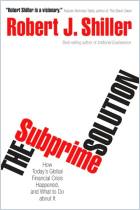Únase a getAbstract para acceder al resumen.

Únase a getAbstract para acceder al resumen.
John H. Cochrane
Toward a Run-Free Financial System
Chicago Booth, 2014
¿De qué se trata?
Governments must stop paving the way toward bank runs by enacting faulty regulation.
Recommendation
In 2008, runs on financial institutions had a devastating impact on the world’s economy. University of Chicago professor John H. Cochrane says runs were the major culprits behind the crisis and believes the same thing could easily happen again in today’s environment. He explains why overregulation will not work, and advocates restructuring the financial system through measures such as shoring up bank equity and avoiding run-prone assets. Cochrane effectively pokes holes in the current American financial and regulatory systems. His proposals, many of which echo those under consideration in Europe, may make sense for the United States as well. getAbstract recommends this report to financial executives, analysts and policy makers who might be intrigued by this line of thinking.
Summary
About the Author
John H. Cochrane is a finance professor at the University of Chicago Booth School of Business.





















Comment on this summary